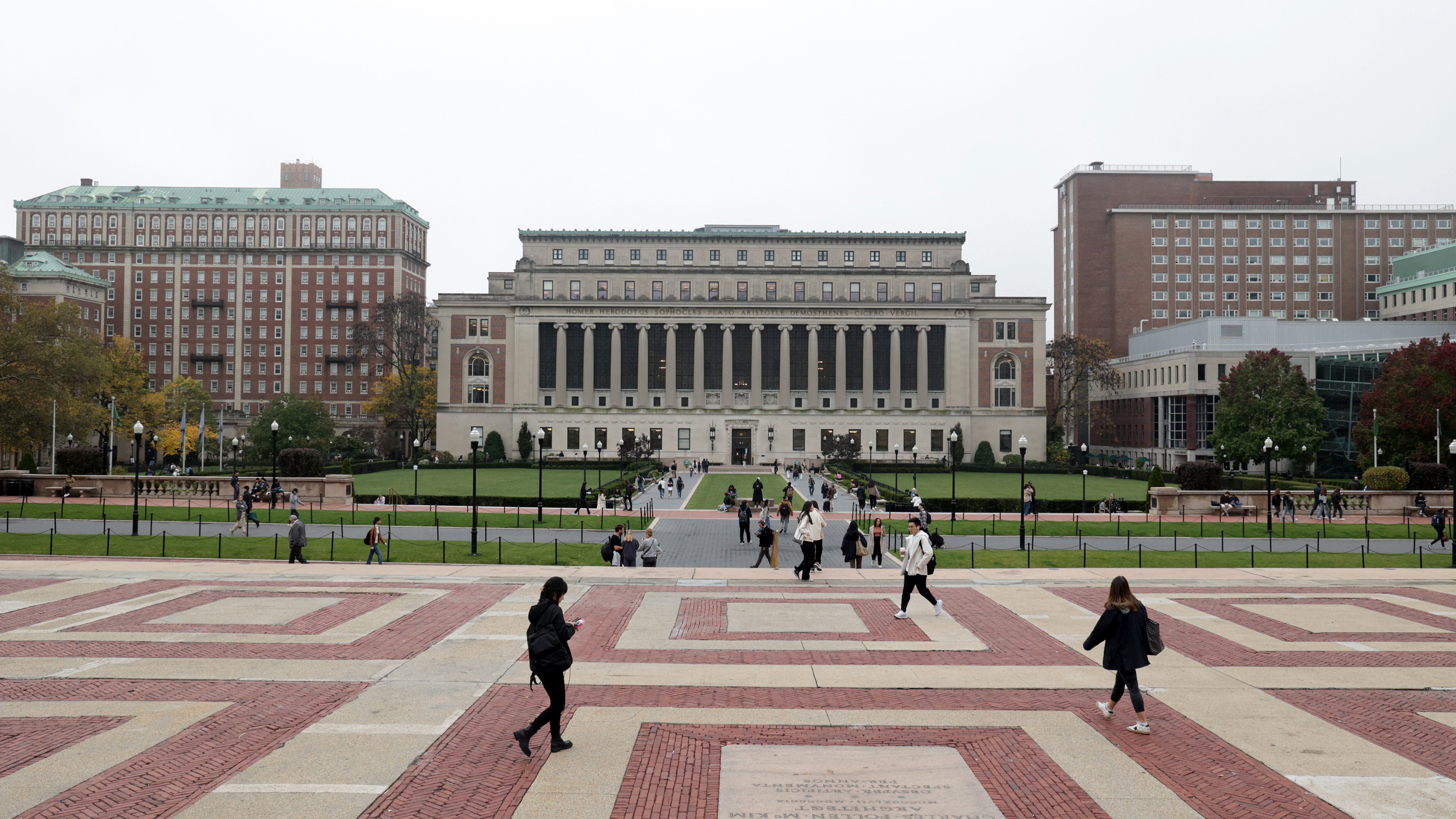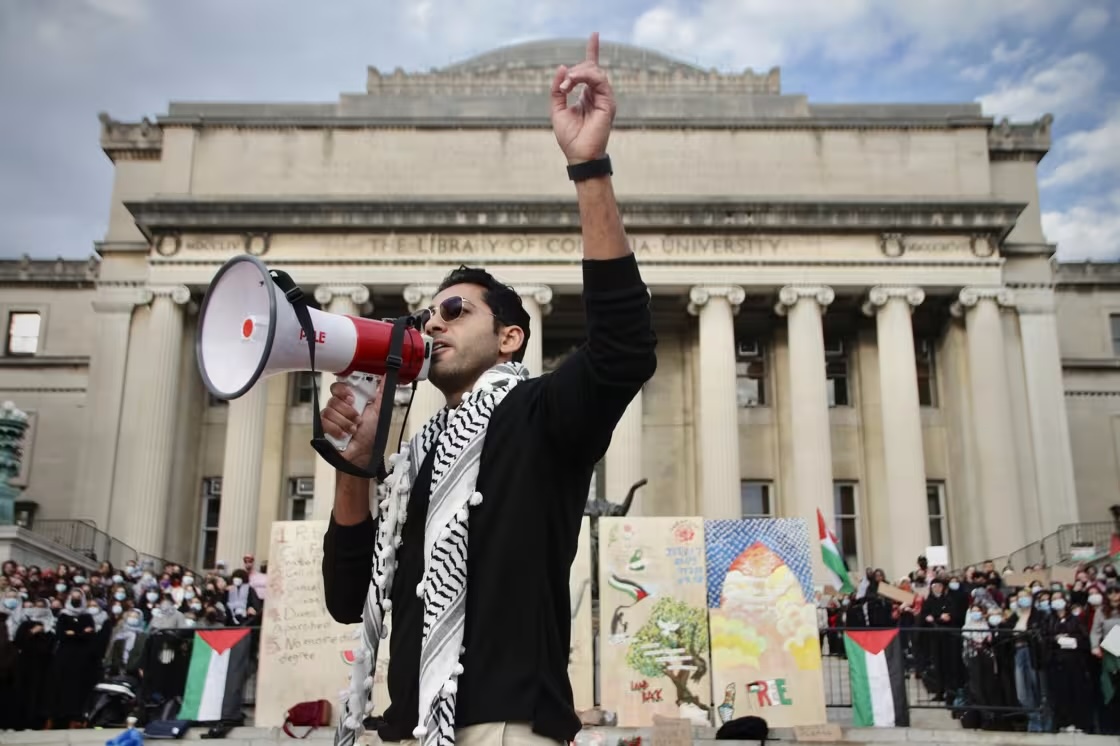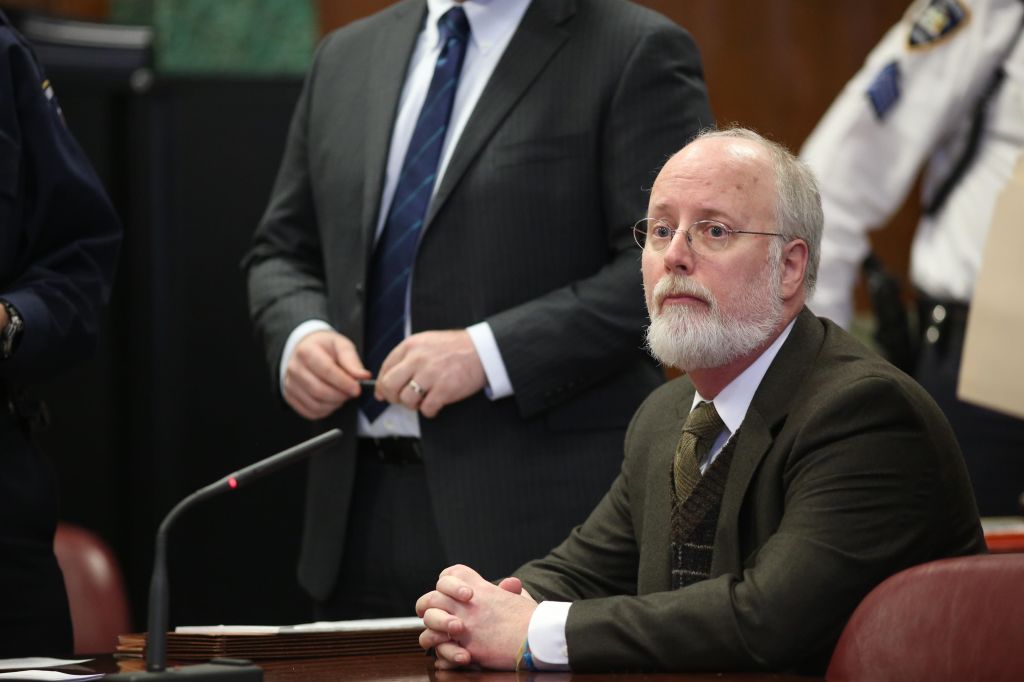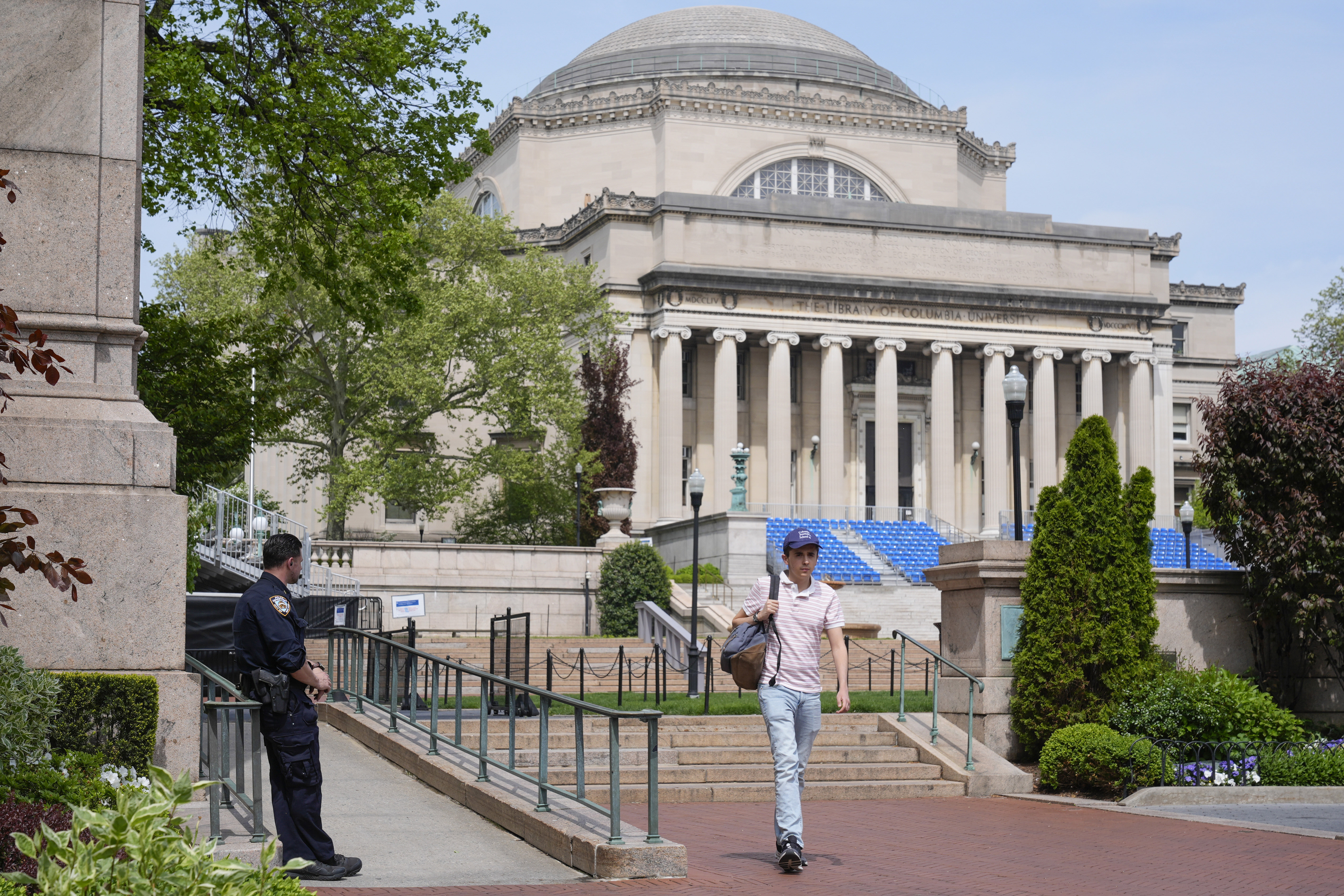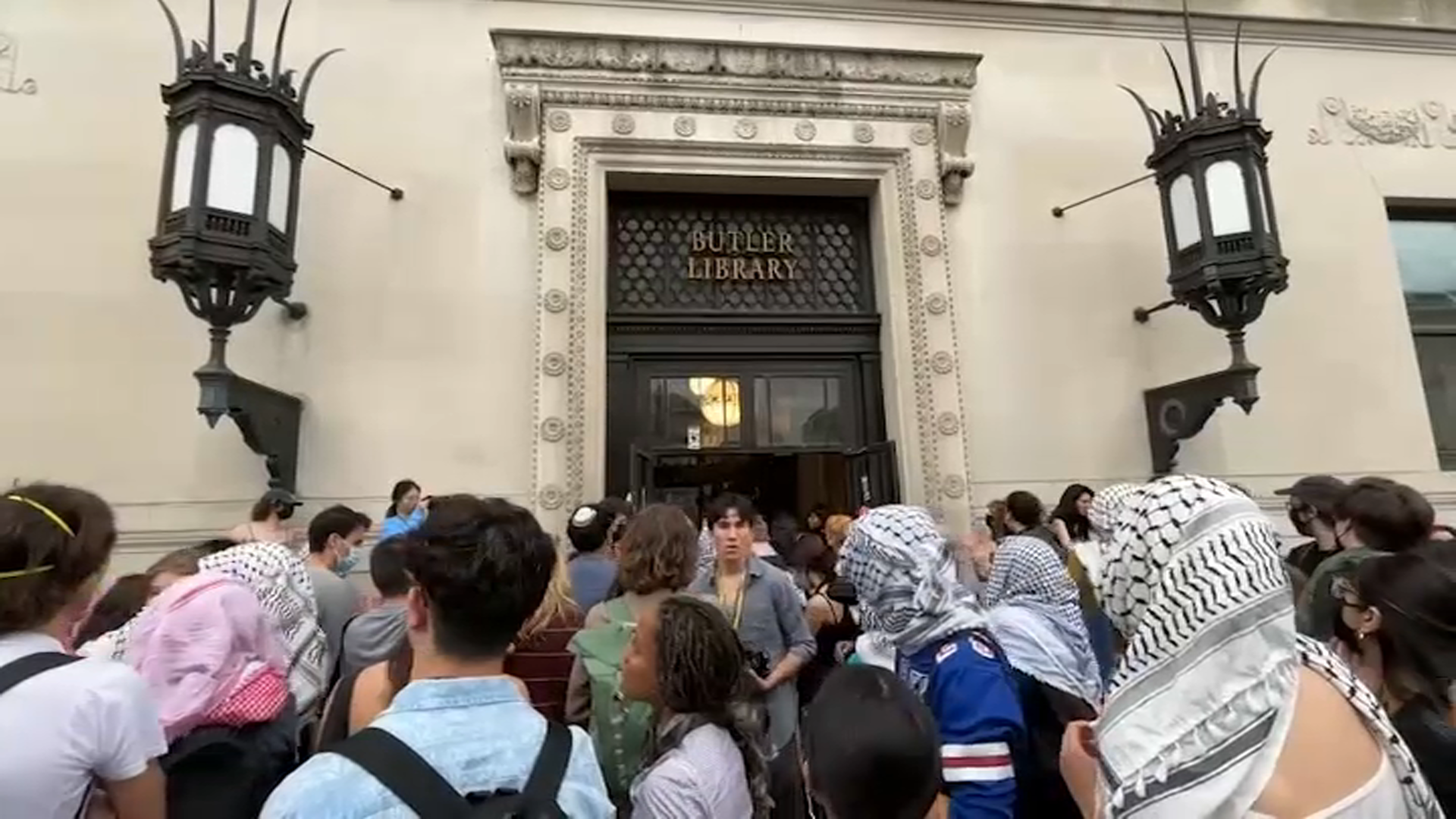Detained Student's Wife Gives Birth: ICE Denies Father's Presence
A Son Born in Absence: Mahmoud Khalil's Wife Welcomes Baby Amid Detention
Introduction: A Bittersweet Arrival
Imagine the joy of welcoming a new life, a tiny human who changes everything. Now imagine that joy tinged with profound sadness, the absence of a loved one, a father unable to hold his newborn son. This is the reality for Dr. Noor Abdalla, the wife of detained Columbia University graduate student Mahmoud Khalil. She announced the birth of their son on Monday, a moment of immense happiness overshadowed by Mahmoud's continued detention. It’s a story of resilience, love, and a stark illustration of the impact of immigration policies on families. Isn't it heartbreaking?
Mahmoud Khalil's Detention: A Timeline
The Arrest on March 8th
Mahmoud Khalil, a graduate student at Columbia University, was arrested by federal agents on March 8th. The reasons surrounding his arrest remain a point of contention and legal debate. The timing of the arrest, weeks before his son's birth, adds another layer of emotional complexity to an already difficult situation.
ICE's Role and Justification
U.S. Immigration and Customs Enforcement (ICE) has the authority to detain individuals who are believed to be in violation of immigration laws. Their justification for Mahmoud's continued detention hasn't been widely publicized, raising questions about transparency and due process. What exactly warranted preventing a father from seeing his newborn child? That's the question many are asking.
The Heartbreaking Request: Denied Access to Birth
Dr. Abdalla's Plea to ICE
Knowing her husband's absence would be deeply felt, Dr. Abdalla requested that ICE allow Mahmoud temporary release to witness the birth of their son. This is a common plea in such situations, often granted based on humanitarian grounds. After all, these are exceptional circumstances.
The Official Denial and Its Impact
Despite Dr. Abdalla's plea, ICE denied the request, citing unspecified reasons. This decision has been widely criticized as inhumane and insensitive. Imagine the emotional toll on both parents, knowing they are separated during this pivotal moment in their lives.
Dr. Abdalla's Statement: A Mother's Anguish
"A Purposeful Decision to Make Us Suffer"
In a powerful statement released on Monday, Dr. Abdalla expressed her outrage and heartbreak. She accused ICE of making a "purposeful decision to make me, Mahmoud, and our son suffer." These are strong words, reflecting the depth of her pain and frustration.
The Emotional Toll on the Family
The separation has undoubtedly taken a significant emotional toll on Dr. Abdalla, Mahmoud, and their newborn son. The early days of parenthood are challenging enough without the added stress of separation and uncertainty. It is, without a doubt, a difficult time for the family. How can one find peace in this situation?
The Wider Context: Immigration Policies and Family Separation
The Impact on Detainees' Families
Mahmoud Khalil's case highlights the broader issue of how immigration policies affect the families of detainees. These policies can lead to prolonged separation, financial hardship, and emotional distress. Often overlooked are the children and spouses left behind, forced to navigate complex legal processes and emotional challenges.
Calls for Immigration Reform
Advocates for immigration reform argue that current policies are too harsh and disproportionately impact families. They call for more humane and compassionate approaches that prioritize family unity and individual circumstances. Isn’t it time we had a real conversation about immigration policies?
Columbia University's Response and Community Support
Statements from the University
Columbia University has likely issued statements regarding Mahmoud Khalil's detention, expressing concern and offering support to the family. Universities often find themselves in a difficult position, balancing the need to support their students with respecting the authority of law enforcement.
Community Rallies and Petitions
Local communities and activist groups may have organized rallies, petitions, and other forms of advocacy to raise awareness about Mahmoud Khalil's case and call for his release. Public pressure can be a powerful tool in influencing policy and raising awareness about injustices. The more people know, the more likely something will happen.
Legal Challenges and Due Process
Habeas Corpus Petitions
Mahmoud Khalil's legal team has likely filed a habeas corpus petition, arguing that his detention is unlawful and violates his due process rights. This legal challenge seeks to compel the government to justify his continued detention and potentially secure his release.
The Right to a Fair Hearing
Every individual, regardless of their immigration status, has the right to a fair hearing and due process under the law. This includes the right to legal representation, the right to present evidence, and the right to challenge the government's claims. Without it, where are we?
The Newborn's Future: Navigating Life Without His Father
The Initial Days and Weeks
The initial days and weeks after a baby's birth are critical for bonding and establishing routines. Dr. Abdalla will face the added challenge of navigating this period without the physical and emotional support of her husband. It’s a daunting task for anyone, let alone a new mother.
Long-Term Implications for Child Development
Studies have shown that a father's absence can have long-term implications for a child's development, affecting their emotional well-being, academic performance, and social skills. While Dr. Abdalla will undoubtedly provide a loving and supportive environment, the absence of Mahmoud Khalil will leave a void. The long-term implications are significant and heartrending.
The Power of Hope and Resilience
Dr. Abdalla's Strength and Determination
Despite the immense challenges she faces, Dr. Abdalla has demonstrated remarkable strength and determination. Her unwavering commitment to her husband and her son is inspiring. It's a testament to her inner resolve and spirit. Her strength is admirable.
The Importance of Community Support
Community support plays a vital role in helping families cope with difficult circumstances. Friends, family, and neighbors can provide practical assistance, emotional support, and a sense of belonging. It truly takes a village, doesn't it?
Call to Action: How to Support Mahmoud Khalil and His Family
Contacting Elected Officials
One way to support Mahmoud Khalil and his family is to contact elected officials and urge them to investigate his detention and advocate for his release. Expressing your concerns can make a difference.
Supporting Legal Funds and Advocacy Groups
Donating to legal funds and advocacy groups that are working to secure Mahmoud Khalil's release can provide crucial resources for his legal defense and advocacy efforts. Every little bit helps.
Conclusion: A Family Divided, A Future Uncertain
The story of Mahmoud Khalil and Dr. Noor Abdalla is a poignant reminder of the human cost of immigration policies. A new life has entered the world, but the joy is tempered by the absence of a father. Their story underscores the need for compassionate and humane immigration policies that prioritize family unity and due process. While the future remains uncertain, the strength of their love and the support of their community offer a glimmer of hope. It's a tragic situation with a small light shining through.
Frequently Asked Questions
Here are some frequently asked questions related to Mahmoud Khalil's case:
- Why was Mahmoud Khalil detained? The specific reasons for Mahmoud Khalil's detention by ICE have not been widely publicized. His legal team is likely challenging the legality of his detention.
- What is Dr. Noor Abdalla's profession? Dr. Noor Abdalla is a dentist born in Michigan.
- What legal recourse does Mahmoud Khalil have? Mahmoud Khalil's legal team can pursue legal challenges, such as a habeas corpus petition, to argue against his detention and seek his release.
- How can the public help Mahmoud Khalil and his family? Members of the public can support Mahmoud Khalil and his family by contacting elected officials, donating to legal funds, and raising awareness about his case.
- What impact does detention have on families? Detention can have significant emotional, financial, and social impacts on families, including separation, hardship, and distress for both the detainee and their loved ones.

